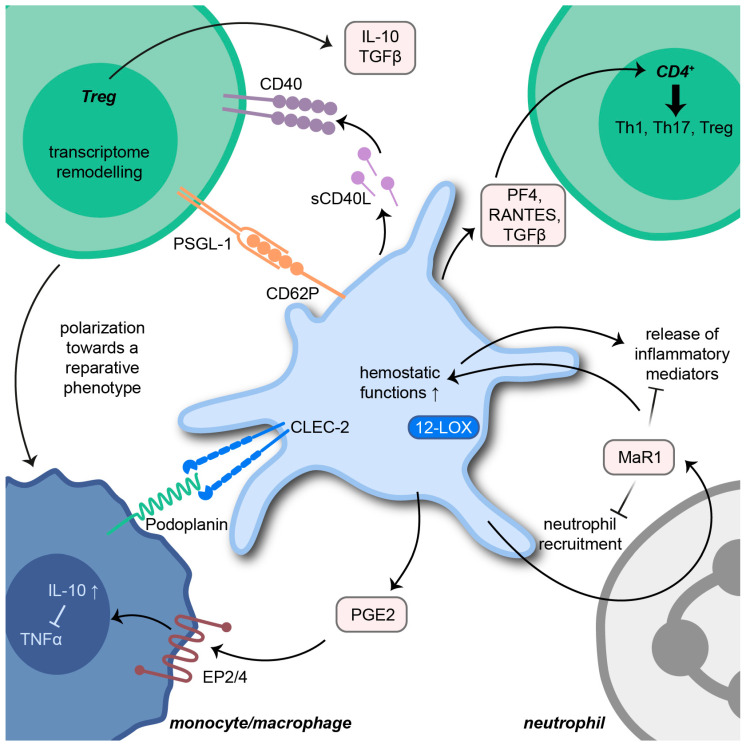Figure 3.
Platelets in inflammatory resolution processes. Interaction of platelets with different immune cells results in the production and release of anti-inflammatory mediators, which promote pro-resolving immune processes. Platelet-derived 12-lipoxygenase (12-LOX) initiates the synthesis of maresin 1 (MaR1), a pro-resolving protein inhibiting the release of pro-inflammatory mediators. Prostaglandin E2 (PGE2) increases the production of the anti-inflammatory cytokine interleukin (IL)-10 by monocytes/macrophages and, thereby, prevents the expression of tumor necrosis factor α (TNFα). Monocyte infiltration is further reduced by platelet C-type lectin receptor 2 (CLEC-2) binding to monocytic podoplanin. Platelet-derived platelet factor 4 (PF4), regulated and normal T cell expressed and secreted (RANTES) and transforming growth factor β (TGFβ) affect the differentiation of CD4+ T cells in T helper (Th) and regulatory T cells (Tregs). Interaction with Tregs via sCD40L/CD40 and P-selectin glycoprotein ligand-1 (PSGL-1)/CD62P promotes Treg-dependent polarization of macrophages toward a reparative fate.

